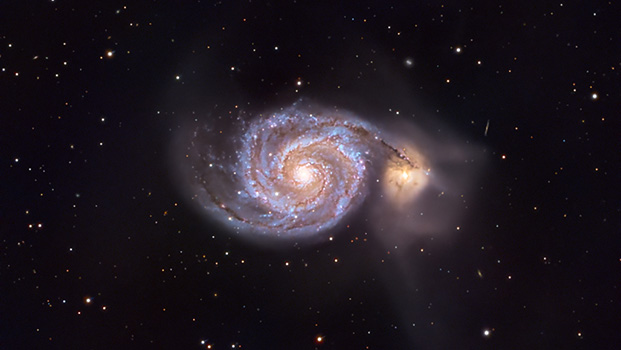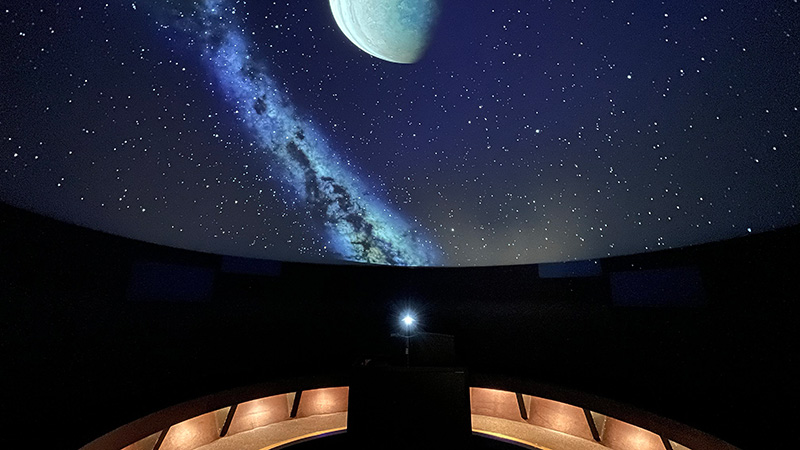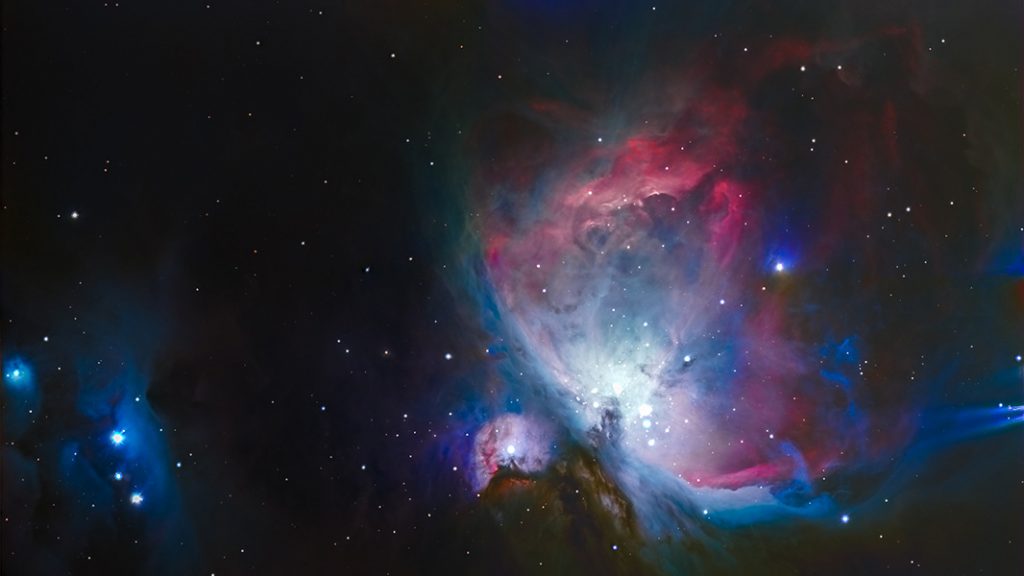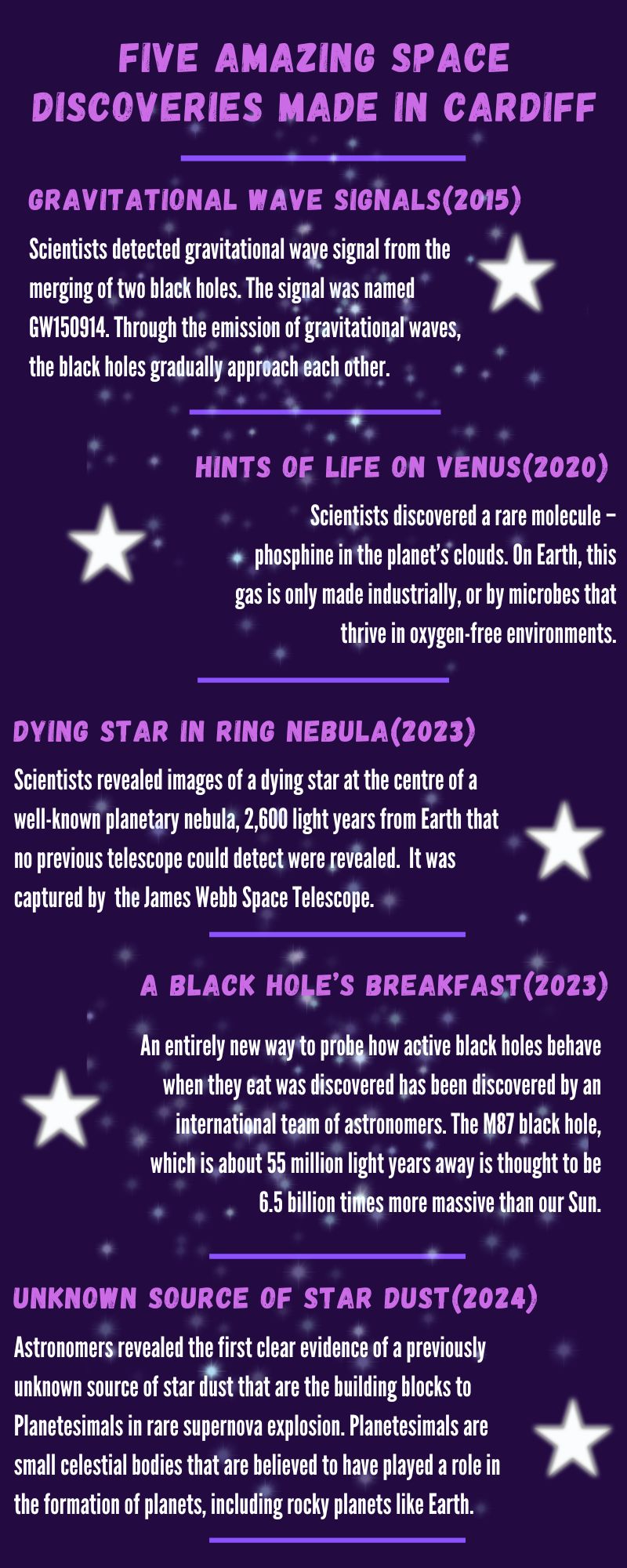With the Welsh dark skies week marking its third year, get started with scientific star watching with an expert Cardiff astronomer.

During the nights when the sky deepens to pitch black, acting as a perfect backdrop for the stars to scatter across it, there are people who just love the idea of exploring the science behind it than simply just watching it.
The natural wonders of the dark skies in Wales have caught a lot of attention. In pursuit of dark sky locations for a perfect star watching spot, experiencing star watching in Cardiff is possible too. Technical star watching is not just for scientists and astronomers, but any sky lover could do it the way they like, and Getting started with it is not a hard nut to crack.
According to Dr Matthew Smith, Cardiff has an advantage of being a small city, so you don’t have to go that far to watch the stars. “You can catch a train with a couple of stuffs and just go up to Porthkerry or the Brecon Beacons. In the city, you may not find a difference where you go in the City Centre but you’ll need an open view. Our students for the astrophotography club go to Bute Park and stay away from obstacles like street lights to get a clear view. Any dark place would actually be fine,” says the astronomer, who is the Director of Postgraduate Research Studies, School of Physics and Astronomy, Cardiff University. The Pebble beach in Barry is also a great spot and has lower light pollution allowing you to view the stars over the waterscape.
You don’t need to spend a lot of money to start star watching. It is easier than you think. “It depends on how far you want to go and how much money you would like to spend. You could use binoculars, your mobile phones, and if you are into photography, you could grab a camera and a tripod,” says Dr Smith.

Cardiff, being a city of Urban lights, may pose some challenges for stargazing due to light pollution, which is why one should find a spot away from the artificial lights. Astronomically, it decreases the “signal-to-noise ratio’ by acting as a foggy layer. “Light pollution is certainly getting worse. The directional street lights, huge billboards in Queen Street with LED’s just increase the pollution. It makes it really hard because if you want to see fine things like galaxies, you can’t see them because they are drowned up by the noise,” Dr Smith said. It means that these human generated illuminations wash out the nebulae, galaxies and even the stars which should be normally seen in the night sky.
The astronomy societies in Cardiff help amateurs get the perfect exposure to star watching using telescopes and other equipment. For an amateur, understanding the movement of stars and planets is a great start if they are keen on studying them. It requires repetitive and constant observation of the sky. “Astronomers often don’t do this, but amateurs or causal sky watchers try to track the movement of the celestial bodies,” says Dr Smith.
Mobile applications are of great help in locating the movement of the planets and stars. They show the right information about the bodies in the sky at a particular time of the day. Google Sky, Stellarium, SkySafari and SkyMap are some of the best astronomy and stargazing applications. “Keeping in track of the weather and checking the locations where light pollution is more is also vital when it comes to star watching,” Dr Smith says.

‘TechniQuest’, a Science Discovery Centre based in Cardiff regularly conducts a planetarium event “Star Tours”, open to the public. According to their Live Science Hosts Team, when you are starting out on star watching, tracking when meteor showers are happening and marking out any nearby phenomena or constellations can be very useful. “If you click pictures of it, then go on your personal social media of choice and make a post with ‘#meteorshower’ and post your findings. It is likely that an astronomer could use your findings and markings for potentially and hopefully, some exciting new discoveries in the near future,” they said.
Cardiff is now a hotbed for research on astronomy with numerous discoveries in the sky. “Cardiff astronomy group is one of the largest in the UK and they are specialised in different areas. Cardiff has also given remarkable contributions in physics and astronomy,” the astronomer says.
Dr Matthew Smith believes that amateurs can have an amazing time exploring the space phenomena no matter what equipment they use or where they go. “You can go anywhere during the night, but be mindful of the weather and enjoy the night sky,” he said.

